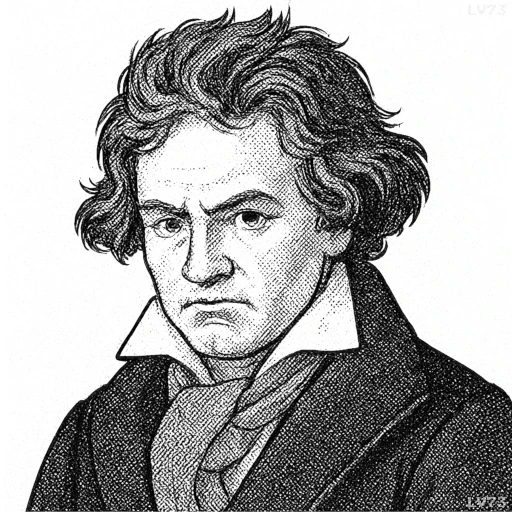“A true artist is expected to be all that is noble-minded, and this is not altogether a mistake; on the other hand, however, in what a mean way are critics allowed to pounce upon us.”

- December 16, 1770 – March 26, 1827
- Born in Germany (Holy Roman Empire)
- Composer, pianist
table of contents
Quote
“A true artist is expected to be all that is noble-minded, and this is not altogether a mistake; on the other hand, however, in what a mean way are critics allowed to pounce upon us.”
Explanation
In this quote, Beethoven reflects on the dual expectations placed on artists: on one hand, they are expected to embody the highest ideals of nobility and virtue, representing the pinnacle of human potential through their work. This could refer to the artist’s responsibility to inspire, challenge, and elevate society through their creativity. Beethoven acknowledges that these expectations are not entirely wrong, as artists, through their work, can indeed contribute to the greater good of society and inspire others toward higher ideals.
However, Beethoven also expresses frustration with the criticism artists face. The second part of the quote reveals his resentment toward how critics, often driven by personal agendas or a lack of understanding, can be harsh and unfair. The word “mean” suggests that critics can be vindictive or unconstructive, attacking artists rather than offering helpful insights. Beethoven’s words reflect the timeless tension between creators and critics, where artists are tasked with meeting high standards while facing scrutiny that is often difficult or unfair to bear.
In the modern world, this conflict between the artist’s pursuit of greatness and the critics’ often harsh judgment continues to be a source of tension. While artists today still carry the weight of societal expectations and strive to meet high standards, they also often face critical commentary that can be dismissive or overly focused on superficial aspects. Beethoven’s frustration with this aspect of the artistic world highlights the ongoing challenge of navigating external expectations while trying to create meaningful, authentic work. His words encourage a more compassionate view of the artist’s experience and remind us of the vulnerability inherent in putting one’s soul into their creations, only to have them subjected to sometimes unfair scrutiny.
Would you like to share your impressions or related stories about this quote in the comments section?

